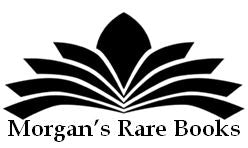Grub St. Stripped Bare by Philip Pinkus
Grub St. Stripped Bare by Philip Pinkus
Couldn't load pickup availability
Grub St. Stripped Bare
The scandalous lives & pornographic works of the original Grub St. writers, together with the bottle songs which led to their drunkenness, the shameless pamphleteering which led them to Newgate Prison, & the continual pandering to public taste which put them among the first almost to earn a fitful living from their writing alone.
by Philip Pinkus
Constable and Company, 1968, b/w plates, hardcover, dustjacket
Very Good Condition, ex-library, stamps to front flyleaf, stickers and stamps to inside back cover and back flyleaf, price-clipped and protected dustjacket, minor rubbing to edges, minor shelf wear (see photographs)
'This portrait of Grub Street, its inhabitants, its customs, its values, all its robust variety, is presented mainly through material not published since the 17th century. It provides and insight into a society of self-appointed pundits, many of them just as learned, intelligent and witty as those of today, but with fewer inhibitions, more daring because they took themselves less seriously, because they were poor and for the most part young, and the libel laws were slack. They pandered a bit, though not more than their modern Fleet Street descendants. It was the price they paid for their independence. They were the first group of writers who lived by their writing, however precariously, and it gave them the moral assurance to sneer at sycophants (more talented than themselves) like Dyden. What they lacked as writers they frequently made up for in ingenuity, in their elaborate devices to catch the reader's interest. But their independence landed them in another kind of bondage, to their publishers, enterprising buisnessmen like the 'unspeakable Curll', who kept stables of writers, slept them three to a bed, advanced them money for work which they sometimes never completed, and trapped them in financial obligations so deep that they either wrote or went to Newgate for debt. Such was subliterary London between 1680 and 1710.'
